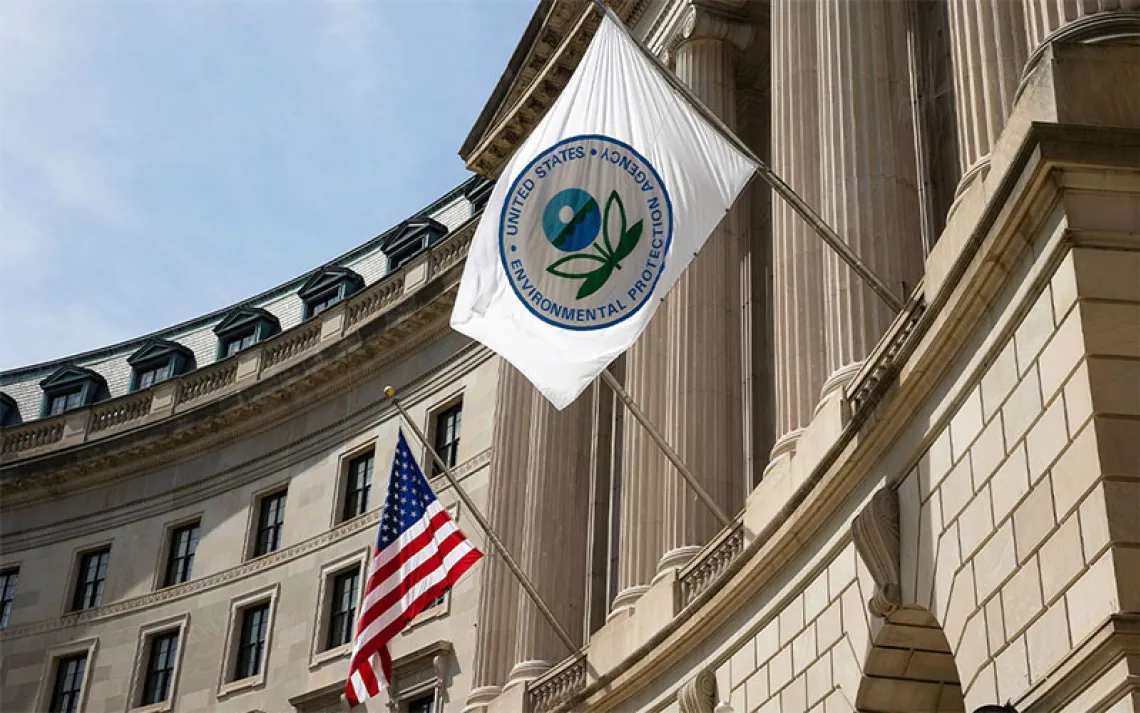The Inflation Reduction Act Buys Us Some Badly Needed Time
The new federal climate legislation offers breathing room to keep pushing for more ambitious—and more equitable—climate action

Photo by iStock/peepo
The Senate’s passage of the Inflation Reduction Act—the biggest US investment in climate change ever—marks the end of an era. On Friday, the House of Representatives will take up the measure and almost certainly approve it. When it does, we’ll have reached the culmination of the epoch (it felt about as long) of congressional inaction on the greatest threat of our time. You can think of August 2022 as a new beginning for the global effort to avoid climate chaos. This is a turning point.
The nation’s first major climate law comes about three decades too late, and not a moment too soon. The only reason it happened at all is that millions of people have spent years marching, protesting, calling/writing/emailing their representatives, putting their bodies on the line, and, altogether, building a movement demanding that federal powers act to preserve a livable planet. As the Sierra Club’s director of legal and advocacy, Leslie Fields, wrote over the weekend, “After years of dedicated campaigning on many fronts, we find ourselves on the precipice of seeing Congress pass the largest investments in climate action, clean energy, and environmental justice in history.”
And, at the same time, it’s important to acknowledge that this isn’t the climate legislation that many of us at one point dared to imagine. Compromises whittled down its one-time ambitions, and it contains some gut-wrenching giveaways to fossil fuel corporations–giveaways that will land hardest on communities that are already burdened by fracking, gas pipelines, and oil export terminals.
But however flawed and incomplete, this bill is a real victory. Some $150 billion in permanent tax incentives will accelerate the utility sector’s move to renewables. Billions more will help to electrify the transportation system. There’s money for decarbonizing heavy industry, as well as $60 billion for environmental justice programs. According to the best estimates, the legislation puts the United States on track to cut emissions 40 percent below 2005 levels by 2030. Put together, the climate investments in the Inflation Reduction Act could generate as many as 9 million new jobs in the United States over the next decade. This is true progress.
Most of all, this legislation is a down payment on a just and sustainable future. It gives us a measure of breathing room to go on and accomplish even more. It buys us some time.
As many people have observed, the most challenging thing about climate change is that it’s a time-bound threat. Each year that we delay in slashing greenhouse gas emissions brings us that much closer to planetary tipping points that will make the problem even worse. The effort to address climate change isn’t only a contest between opposing ideologies and conflicting ideals of “the good.” It’s a race against planetary systems beyond our control.
The Mercator Research Institute on Global Commons and Climate Change maintains an online timer showing how many years civilization has until it overshoots its “climate budget”—that is, the amount of carbon and methane pollution we can emit until we hit certain temperature levels. By slashing US emissions, the Inflation Reduction Act can help to slow the countdown. We’ve given ourselves the breathing space to shift the strategic needle a little from desperate urgency to more deliberate action. The Senate passage of the climate bill “makes EVERYTHING easier from here,” Princeton energy analyst Jesse Jenkins wrote on Twitter Sunday.

Sign up to receive Sierra News & Views
Get articles like this one sent directly to your inbox weekly.
With this action you affirm you want to receive Sierra Club communications and may vote on policy designated by the Sierra Club Board.
If this new law will make things easier, that doesn’t exactly mean they’ll be easy. When President Biden finally signs this legislation into law, there will still be so much work to do—new struggles, new terrains of contest and of possibility.
The climate movement will have to work to ensure that this law is implemented as intended, and that the communities hit first and worst by climate impacts are supported. We’ll have to work for new policies to advance mass transit, cycling, and smart growth—longtime environmental priorities that were left on Joe Manchin’s cutting-room floor. We’ll have to keep working to create a Climate Conservation Corps that will enlist people in the generation-long endeavor to build more climate-resilient and climate-adaptable communities. We’ll have to work to stay focused on city and state climate initiatives, which will be essential to getting the United States the rest of the way to its 2030 climate goals.
And, most of all, the climate movement will continue working to keep fossil fuels in the ground. For all of its benefits, this climate legislation makes a gross trade-off by requiring more oil and gas drilling in the Gulf of Mexico and off the coast of Alaska in exchange for renewable energy development. Communities that all too often have been considered disposable were again sacrificed. Once more, the heaviest work of all will fall on low-income communities and communities of color living along the fencelines. The best way to be in solidarity with those communities is to help ensure that they don’t have to be in the struggle alone.
All of that work will be every bit as demanding as the effort to pass this imperfect, essential legislation. Now, at least, we have more time on our side—and that’s likely to make all the difference in the world.
 The Magazine of The Sierra Club
The Magazine of The Sierra Club



